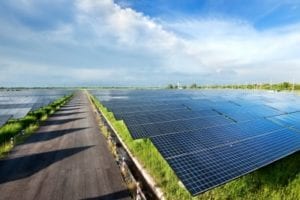Air pollution is a growing problem in Africa, driven by lack of regulations and poverty amongst others. Beatrice Philemon from IPP Mediareports that in Africa, urban outdoor air pollution is responsible for an estimated 63 000 premature deaths each year in Africa.
 Rapid and mostly uncontrolled urbanisation, increased motorisation and economic activity have increased the presence of key pollutants in the urban atmosphere. It is reported that a city such as Dar es Salaam in Tanzania has levels which are critical and yet, the country continues to rely on foreign countries for data and best practice solutions.
To develop long term strategy and short term action plans for protection of human health, improved air quality and road safety, Tanzania and other countries in Sub-Saharan Africa have been advised to take accurate air pollution data particularly on transport-related pollutants.
According to Dr Dieter Schwela from the Stockholm Environment Institute, it is paramount that countries conduct research and collect their own data so as to find solutions that are specific to the needs of the country and its society. Air pollution does not only originate from industry and transport, but also from open fires used for cooking – and in African conditions, this oftentimes takes place inside the home. The long-term effects on human and ecosystem health can be enormous and impacts directly on the economies of countries suffering from this
Rapid and mostly uncontrolled urbanisation, increased motorisation and economic activity have increased the presence of key pollutants in the urban atmosphere. It is reported that a city such as Dar es Salaam in Tanzania has levels which are critical and yet, the country continues to rely on foreign countries for data and best practice solutions.
To develop long term strategy and short term action plans for protection of human health, improved air quality and road safety, Tanzania and other countries in Sub-Saharan Africa have been advised to take accurate air pollution data particularly on transport-related pollutants.
According to Dr Dieter Schwela from the Stockholm Environment Institute, it is paramount that countries conduct research and collect their own data so as to find solutions that are specific to the needs of the country and its society. Air pollution does not only originate from industry and transport, but also from open fires used for cooking – and in African conditions, this oftentimes takes place inside the home. The long-term effects on human and ecosystem health can be enormous and impacts directly on the economies of countries suffering from thisWhile there is progress, the reliance in sub-Saharan Africa on fossil fuels as an energy source hampers the advances made. With all major transportation relying on fossil fuels and the concoction of increasing migration, motorisation and uncontrolled urban growth has all contributed to the intensification of air pollution. Challenges include old vehicles in large numbers on African roads, the lack of regulatory frameworks and the poor or inadequate enforcement of laws, where they do in fact, exist.
One of the ways in which air pollution can be mitigated is the use of solar energy. Africa has enough sunshine and few enough rural areas with access to power to warrant the development of this energy source. However, it is not only the environment and the air quality that improves with small-scale whole-village electrification via solar power. Rural communities and those living on the outskirts of cities, that cannot properly irrigate land cannot properly harvest or plant enough diversity to combat malnutrition. Solar power can provide energy for wells to extract cleaner water leading to a reduction in diarrhoea and consequently, overall health. Communities that have access to drip irrigation systems can plant enough to sell which in turns leads to a better quality of life. Solar wells also bridge dry months when there is little rainfall and full access to electricity reduces the need for fires in the home used for cooking and allows school-going children to study for longer hours. It truly is a win-win situation. Source: ippmedia.com






